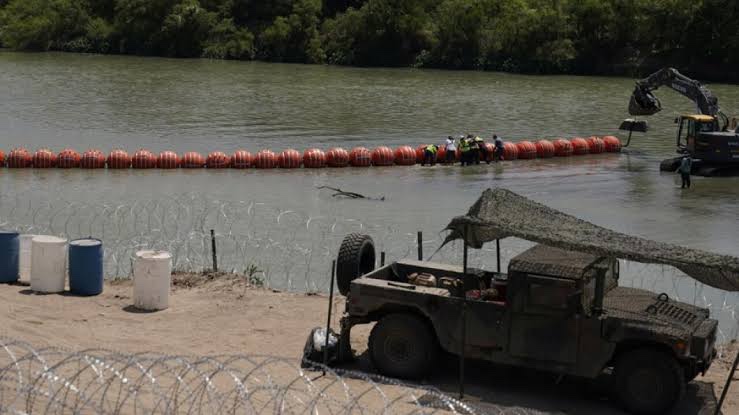Biden administration files lawsuit against Texas over controversial floating border barriers

The Biden administration has taken legal action against Texas over the deployment of floating barriers in the Rio Grande to repel migrants. The Justice Department filed a nine-page lawsuit, arguing that Texas violated federal law by installing the buoys without obtaining the required federal authorization. The barriers have sparked concerns over endangering migrants and Border Patrol agents, as well as drawing diplomatic protests from Mexico.
The lawsuit, filed in the federal district court in Austin, demands that Texas remove the existing river buoys and be prohibited from setting up similar barriers in the future. Associate Attorney General Vanita Gupta expressed the administration’s concerns, citing threats to navigation, public safety, and humanitarian issues.

The conflict escalated when the Biden administration warned Texas last week that a lawsuit could be avoided if the barriers were removed. However, Texas Governor Greg Abbott, a Republican and vocal critic of the administration, defended the state’s actions and welcomed the legal battle.
The floating barriers are part of Operation Lone Star, a multi-billion-dollar initiative authorized by Abbott to address unauthorized border crossings. State officials and the National Guard have been tasked with deterring migrants through various measures, including the installation of razor wire on the riverbanks and arresting migrant adults on state trespassing charges. The state has also transported thousands of migrants to other cities to protest “sanctuary city” policies.
While Abbott has justified these actions with record levels of migrant apprehensions, recent statistics show a significant decrease in unlawful crossings along the U.S.-Mexico border. The Biden administration’s stricter asylum rules and efforts to direct migrants to legal pathways have contributed to the decline.
Operation Lone Star has faced criticism from migrant advocates and the Biden administration since its inception. Internal scrutiny was further intensified when a Texas state trooper and medic reported concerns about state actions putting migrants at risk. Allegations include injuries caused by razor wire and barriers pushing migrants to cross the river in dangerous areas.
The Texas Department of Public Safety has initiated an internal investigation into these allegations, although they deny any directives to withhold water from migrants or physically force them back into the Rio Grande. As the legal dispute continues, the implications of this clash between the federal government and Texas remain at the forefront of the national debate on immigration policy.














